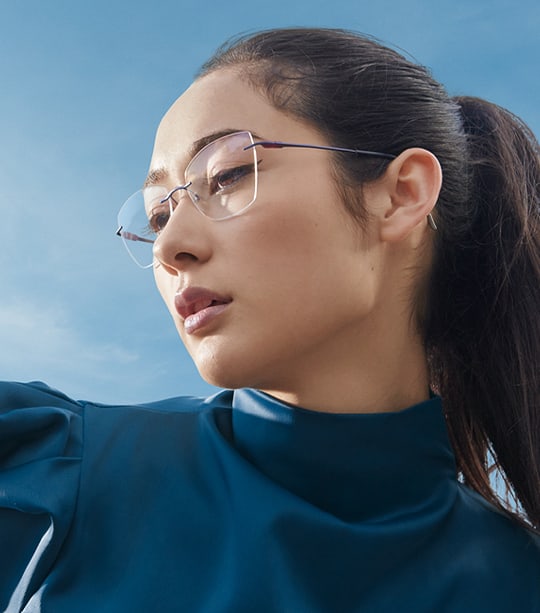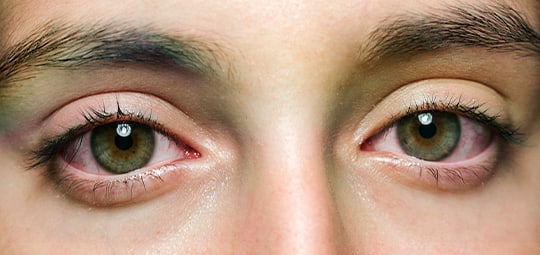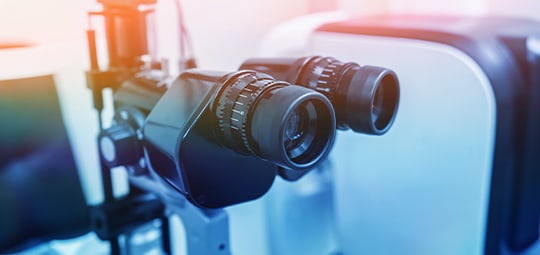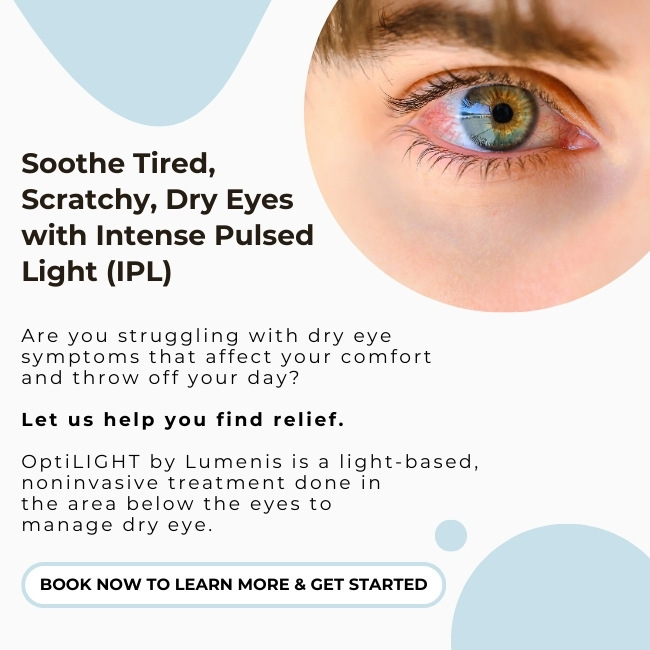Preserving Your Vision Throughout Your Life
Your eye health can play a vital role in your quality of life.
With the help of our technology-driven approach, we can give you the support you need to understand your eye health and preserve it throughout your life.
Start by requesting an eye exam with the team at Karwoski Family Vision today.
Request AppointmentThe Importance of Eye Exams
Everybody’s eye care needs differ, so we recommend regular eye exams to help spot potential concerns before they affect your vision.
Several eye diseases and conditions can develop without showing initial symptoms. However, we can detect those issues with the help of our comprehensive, tech-driven eye exams.
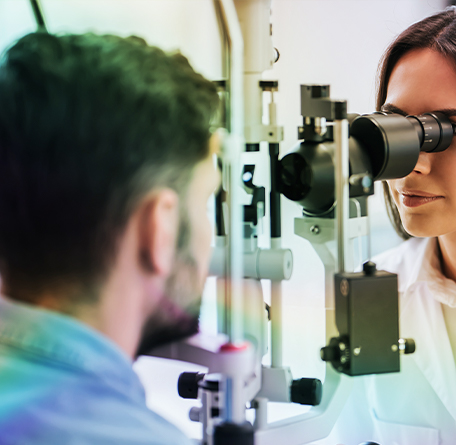
Common Eye Diseases & Conditions
We look for eye diseases and concerns during your eye exam, the most common being glaucoma, age-related macular degeneration, diabetic eye disease, and cataracts.
Glaucoma
Glaucoma is a group of eye diseases that can affect the optic nerve. It’s often associated with high internal eye pressure (intraocular pressure or IOP) but can also develop when the pressure is within normal limits.
The most common types of glaucoma include:
-
- Open-angle glaucoma
-
- Closed-angle glaucoma
-
- Normal-tension glaucoma
Age-Related Macular Degeneration
Age-related macular degeneration (AMD) is a common eye disease typically affecting adults age 55 and over. It affects the macula, a part of your retina responsible for providing the central vision you use for reading, driving, and recognizing faces.
Diabetic Eye Disease
Diabetic retinopathy is a common eye disease for those who live with diabetes. It occurs when sugar in your bloodstream causes the blood vessels in your retina to bulge, break, and leak fluid. As a result, you may experience permanent vision loss.
Learn more about diabetes and how it can affect your vision on our Diabetic Eye Exams page.
Cataracts
Cataracts are common in older adults—an issue that can cause the natural lens in the eye to become cloudy and opaque, affecting how light enters your retina. As a result, it can blur your vision and may even lead to blindness.
Cataract surgery can help permanently correct this condition, and we can help co-manage this procedure with your ophthalmologist.
How We Detect Eye Problems
We take a tech-focused approach to detecting eye diseases and conditions. If we discover a potential concern, we can develop a personalized strategy to help preserve your vision.
Optical Coherence Tomography
Optical coherence tomography (OCT) is a technology that gives us detailed, cross-sectional images of your retina. These images can be compared to an ultrasound, but using light to generate its images instead of sound.
OCT can help us detect glaucoma, AMD, and diabetic eye disease.
Fundus Photography
Fundus photography is an imaging technology that gives us highly detailed color images of the back of your eye—an area known as the retina.
With these images, we can detect diseases like glaucoma, AMD, and diabetic eye disease.
Goldmann & iCare Tonometry
Tonometry is a technique we use to measure your eye’s internal pressure and detect signs of glaucoma or IOP levels. We use 2 different types of tonometers:
-
- Goldmann tonometry uses a small probe on your cornea to measure how much resistance it meets.
-
- iCare tonometry uses a similar technique but is handheld, giving us more mobility to measure your IOP.
Visual Field Analysis
A visual field analyzer is a tool we use to determine if an eye disease has affected how much peripheral vision you have.
This technology is a fantastic way to help detect signs of glaucoma.
Request Your Eye Exam Today
Get help preserving your vision from eye disease and request your next appointment with Karwoski Family Vision today.
Request AppointmentOur Location
Visit Our Location
Find us in Winfield Market Square, just across the street from Winfield train station. Parking is available in front of our practice.
Our Address
- 27W460 Chicago Ave., Unit D
- Winfield, IL 60190
Contact Information
- Phone: (630) 480-2646
- Email: [email protected]
Our Hours
- Monday: Closed
- Tuesday: 9:00 AM – 5:00 PM
- Wednesday: 9:00 AM – 5:00 PM
- Thursday: 9:00 AM – 5:00 PM
- Friday: 8:00 AM – 4:00 PM
- Saturday: By Appointment
- Sunday: Closed
Our Brands
We offer styles for all members of your family! With featured top brands such as Maui Jim, Ray-Ban, and MOREL, you can find a frame that will fit your style.
From trendy sunglasses to classic frames, Karwoski Family Vision has you covered! Visit us today and redefine your look.




